Dating culture can be very different from place to place. Mutual understanding between partners is one of the most important ingredients to a happy relationship. In this article, we explain Japanese dating culture so that cultural differences don’t come in the way of your relationship. Know the dos and don’ts, social cues, and other important things about dating in Japan.
Table of Contents
- How Romantic Relationships Work in Japan
- Dating Norms in Japan, What You Need to Know About Dating in Japan
- Where do couples in Japan go on dates?
- Planning for the Future
- To Close
Dating Culture in Japan

Dating in Japan can be described as conservative. Though not in these exact words, “I want to date you” and “I accept” are clearly expressed before dating begins and casual relationships are relatively rare (this may also depend on age). Relationships between adults are usually entered into with marriage in mind from the onset and relationships tend to progress slowly.
It is very different to Western dating culture where a simple meal or a coffee together can, more or less, serve as a casual first date for a couple who may be close friends already or have only met for the first time. In these cases, there is no need to explicitly mention and agree that this is a date, nor anything said or done to confirm commitment to a serious relationship.
Confession
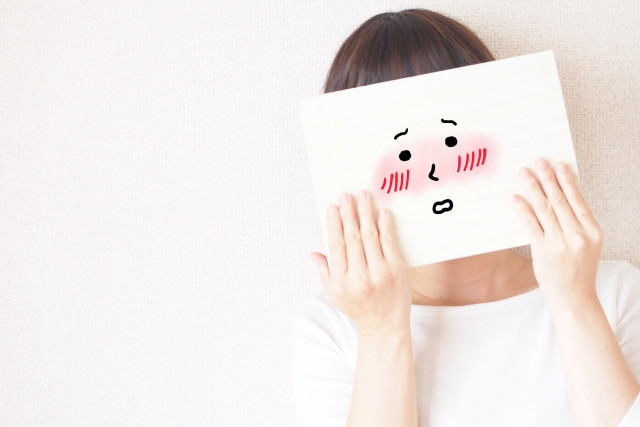
Kokuhaku (告白) or a confession is the prelude to dating in Japan. A confession is when a man or woman tells the other party their feelings, that they like them and want to date them. If the recipient of the confession accepts, they become a couple and start dating. Confession scenes are frequently depicted in anime and dramas, sometimes by sending a love letter though this is usually only done by students.
Finding a Date in Japan
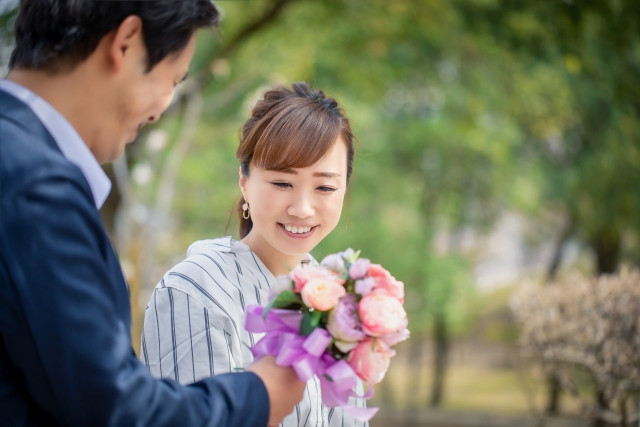
In the first place, how do you find someone to date? Romantic relationships may arise naturally as you attend school or work, but there are also specific events to meet people. Let’s have a look.
Group Dates
Group dates, or goukon (合コン), is a unique part of dating culture in Japan that gives people a chance to meet someone of the opposite gender. These meetings can be a meal, a karaoke session, or a drinking party. They are usually organised by a group of friends or acquaintances though people from outside the circle may also be invited. An even number of men and women are usually invited though not always. It is a safe way to meet people who are interested in pursuing a relationship.
For those that are mutually interested, they can exchange contact information and meet up again to get to know each other better. If all goes well, a confession will take place!
Matchmaking Parties
Matchmaking parties, called konkatsu parties (婚活パーティー), are more formal meet-ups for singles looking to enter into a romantic relationship with marriage as a clear goal. Konkatsu parties are usually organized by professional matchmaking groups or companies who provide everything from organizing and advertising the event, screening and accepting participants, and hosting the event at a nice venue. It’s a stage to meet a potential partner and find a good match to someone of the same or close age, occupation, income-level and background.
There are different styles of konkatsu parties. Some allow participants to freely mingle amongst each other. There’s also the speed dating type where you are given a fixed time to talk to each person.
Marriage Interview
Marriage interviews are called omiai (お見合い) in Japanese. It is an age-old Japanese tradition dating back to the samurai period where it was more akin to an arranged marriage between families to improve political relations, family status or wealth.
Omiai in modern times are very different, as they are purely for matchmaking purposes. An omiai is an arranged meeting where a man and woman are introduced to one another as marriage candidates. There are many marriage agencies that offer omiai services and match people according to their compatibility. If both sides are happy with their match, they can move on to getting to know each other better, become a couple then eventually get married. It is no different than a regular romance, just with an intermediary.
Writer's Pick
Dating Norms in Japan
Next, let’s look at what to expect from dating in Japan. This is the important bit as what you are accustomed to may not be the norm here.
Calling Someone by Their First Name
You may not know this but calling someone by their first name is very personal in Japan. First names are usually reserved for close friends and family, and last names with the suitable suffix (most commonly -san) should be used in formal settings and any other situation. Only once a closer relationship is established do couples start calling each other by their first names or some other term of endearment. On that note, don’t presume you can call someone by the first name immediately after you start dating!
For more about the correct way to address people in Japan:
San? Kun? Chan? Learn Which Japanese Suffix You Should Use to Call Someone
Tone Down the PDA
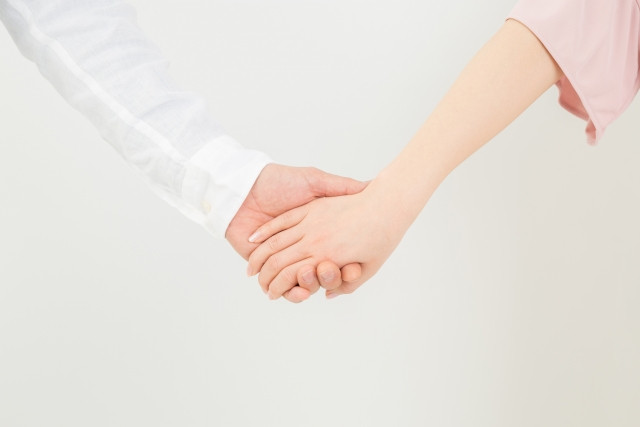
Public displays of affection (PDA) are not well-received in Japan. Holding hands is fine but hugging, kissing, waist-holding or anything more will make people around you uncomfortable, so keep the PDA behind closed doors. Keep this in mind when dating a Japanese person as your public showing of affections may not be well received; we recommend having a talk about it to know your partner’s boundaries.
Couple Events and Celebrations
Every day with your loved one is a day worth celebrating, but some days are just special for couples in Japan. Namely Valentine’s Day, White Day and Christmas Eve!
Valentine’s Day in Japan
In other countries, Valentine’s Day is a day for men to pamper their love with presents, chocolates, roses, and a fine meal. In Japan however, the roles are reversed with women doing the expressing of love. Valentine’s Day is an important day for girls and women in Japan to give chocolate as a way to express their affections. There are a few type of chocolates that carry different feelings behind them:
-
Honmei Choco 本命チョコ is "genuine" chocolate given to love interests; a crush, boyfriend or husband
-
Giri Choco 義理チョコ is "obligatory" chocolate given to colleagues, your team, your boss
-
Tomo Choco 友チョコ is "friend" chocolate given to (and exchanged between) friends
-
Fami Choco ファミチョコ is "family" chocolate given to family members
-
My Choco マイチョコ is "my" chocolate given to yourself as a reward
White Day
One month after Valentine's Day, March 14 is White Day. For guys that receive honmei choco, it is an important day to show that he reciprocates her feelings. For other types of Valentine’s chocolate received, it is a day to show appreciation for the gift. The value of the White Day gift shows the “heaviness” of your feelings, so reciprocal to honmei choco should be a special gift whilst something simple is sufficient for the others. Candy and sweets are the norm as White Day presents but recently other sorts of presents including chocolate, cakes, and even items like keychains are given.
Christmas Eve

Christmas Eve in Japan is the most romantic day of the year, as it is a day to spend with your lover. Neither Christmas nor Christmas Eve is a holiday in Japan which is why couples usually meet up in the evening for a romantic dinner, go to see winter illuminations, and exchange Christmas presents. If it so happens that Christmas Eve falls on a weekend, then lucky them: they get to enjoy a whole day together.
Going Dutch on Dates
Aside from special occasions, such as Christmas and birthdays, there is no expectation that the men should cover the bill for every date in Japan. In fact, it is customary to split the cost of meals or other expenses equally. That may be the norm, but there’s nothing wrong with wanting to pamper your partner with a special treat, or to make a good first date impression.
In fact, according to a survey conducted by marriage agency Tameny Inc., when asked “do you want your partner to treat you on the first date?” 55.3% of male respondents answered they’d like to treat their partner on the first date, and 47.1% of female respondents answered they’d like to be treated on the first day - whilst 36.7% of male respondents and 43.2% of female respondents answered they’d want to split the bill.
Budget for Dates in Japan
Whilst we’re on the topic of date costs, what exactly is a good budget for dates? In the same survey, participants were asked “What do you think is a suitable budget for a date?” Majority of male respondents at 26.7% think that ~5,000 yen/person is just the right amount for a date, whilst the majority of female respondents at 32.5% think that ~3,000 yen/person is just the right amount for a date. Looking at these numbers, a budget of around 3,000 yen for the first date would be for the best.
※PR Times, “初デートでファミレスは「アリ」女性の54.6%、男性は46.4%~男性の36.7%、女性の43.2%が初デートでは「割り勘、または自分の分を支払いたい」~”
Personal Time is Important

Japanese people value their privacy and personal time, even if it’s time away from their lover. In a survey conducted by media for women Spicomi about how often couples meet up and contact each other, it seems that the majority of couples can only meet up once a week (41.6%). Their reasons were because of work and so they could only meet up on weekends or holidays, though there are people who responded that once a week is just fine because they needed time to themselves.
But what about the ideal situation? How often would these couples like to see each other? The numbers do not change much with many thinking that the ideal schedule for meeting their partner is once a week (39.2%), or once every 3~4 days (21.5%). Though there’s a huge rise in the number of people that want to see their partners daily at 10.5% compared to only 2.4% who are actually able to do so.
The survey also revealed that the majority of couples contact each other 10 or more times a day. Some prefer to make calls whilst some prefer to send messages. The average total contact duration between couples is 49 minutes.
※ SocialWire Co., Ltd., “カップルの恋愛事情調査2021年!会う回数や連絡回数は?どんな付き合い方?”
Hidden Signs of Love and Ways Japanese Show Love

Aside from confessing feelings and special occasions like proposals and marriage, it is not very common to voice your love for someone in Japan.
“I love you” is aishiteru (愛してる) in Japanese but it is very rarely used in real life despite what you see in anime, dramas and movies.「愛してる」 can only be described as「重い omoi」or “heavy”, as it’s like daisuki (大好き), which is stronger than suki (好き), but x100 more. Aishiteiru should only be reserved for very special occasions like proposals, anniversaries, and weddings, though most people prefer to use daisuki even for those occasions. So how do people say “I love you” in Japan then?
In everyday occassions, rather than outright telling someone you like them by saying, expressing affection by actions like helping them with something or indirect speech is more common. For example, saying thank you (ありがとう arigatou) to express appreciation and gratitude, checking in on how they are doing from time to time, etc.
Where do couples in Japan go on dates?

In Japan, dates are normally half-day or whole-day affairs as opposed to just having a quick meal and a coffee. This way, couples can really get to spend time together and learn more about each other. There are many things to do in Japan which gives couples a variety of choices for venues and activities.
Outdoor Date Options
- Hiking / Trekking
- Garden / Park (for a walk or picnic)
- Go for a Drive
- Amusement Park / Theme Park
- Zoo
- Out of Town Day Trip
- Beach
Indoor Date Options
- Restaurant /Cafe
- Aquarium
- Cinema
- Karaoke
- Indoor Amusement Park
- Shopping
- Bar / Izakaya
- Staying Home (play games, watch Netflix, home cooked meal)
Where to go for the first date?
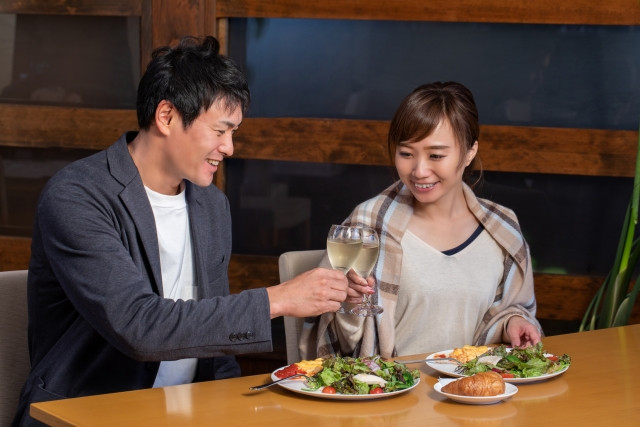
Where do Japanese men and women want to go for their first date? Let’s have a look at the results for a survey conducted by MyNavi Women.
[Women’s Ranking] Where do you want to go for the first date?
-
Restaurant / Cafe
-
Aquarium
-
Cinema
-
Amusement Park / Theme Park
[Men’s Ranking] Where do you want to go for the first date?
-
Restaurant / Cafe
-
Amusement Park / Theme Park
-
Aquarium
-
Cinema
According to the results, the most popular dating spots (especially for first dates) are restaurant/cafe, aquarium, cinema, and amusement park/theme park for both men and women. Restaurant/Cafe is the most preferred choice for both men and women, but the order of preference for the remaining differs for both genders.
The participants also gave their reasons for their votes. The reason restaurant/cafe is the most popular choice is because it has the best first date atmosphere. Having a meal together whilst talking is the best way to really get to know each other better.
For the other popular choices, the first date can be awkward if both sides are shy. In which case, going somewhere engaging means that there’ll be something to talk about. Not to mention, those places are just plain fun. At amusement parks/theme parks and aquariums, you can talk whilst walking around, whilst for cinemas, you can discuss the movie after watching.
※ MyNavi Woman, “男女でちがう! 付き合う前の初デートで行きたい場所とデートプラン”
Planning for the Future
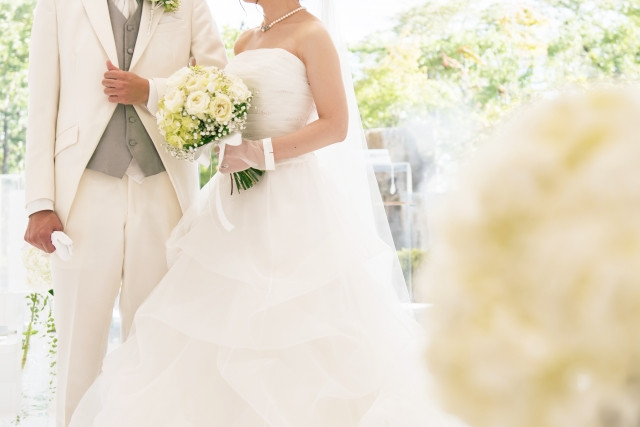
You’ve come to love your partner and cannot envision a future without him/her, so what’s the next step? Meeting the parents and marriage perhaps? So, what’s that like in Japan?
Meeting the Parents
Meeting your girlfriend/boyfriend’s parents shows that you are very committed to the relationship with marriage in mind. Nowadays, being introduced to your partner’s parents doesn’t need to be quite such a formal introduction but are slightly more casual encounters like visiting their house or having a meal together. But this is still considered a big deal.
When visiting your future-in laws house, do follow the proper etiquette like bringing a gift when you visit including the right gift etiquette, as well as properly greeting them. Respecting their culture and doing your best to follow will make a good impression. From thereon, just continue to build a friendly relationship with your partner’s family.
Parents' Blessings and Marriage Approval
Similar to many Asian cultures, Japan is also very family oriented - going back to your hometown for New Year’s and Obon, having meals together, respecting elders and ancestors, etc. Naturally, like many other Asian cultures, having your parent’s blessings or permission to marry is very important to your Japanese partner. In fact, it may even make or break your relationship if their parents are against your union and can be a huge source of stress to your partner. This is why gradually fostering a good relationship from the onset is so important. There’s also a chance you may live with and take care of your in-laws in their senior years, so it’s not to be treated lightly.
Marriage and Weddings in Japan
Marriage and wedding customs can be quite different in Japan. There’s so many things to know like the legal procedure, different types of wedding ceremonies, the costs, and more! We recommend reading this article to help you gain a better understanding: All about Marriage and Weddings in Japan
Reasons for Late Marriages in Japan
One of the contributing reasons to Japan’s declining childbirth rate is the reduced marriage rate as people decide to marry later in life, which directly affects their decisions and sometimes physical ability to have children. There are many reasons why men/women have chosen to marry late including choosing to focus on their careers, high and growing costs of childcare and education, increasing cost of living, unable to find the right partner to settle down, liking the existing relationship situation, and worry over potential household conflict. But this is not a problem that only afflicts Japan, and there are many couples that have overcome these problems and have a happy married life anyway so don’t let it be a deterrent to you.
To Close

We have more or less covered everything you need to know about dating culture in Japan. We would like to add-on though that everybody is different, our personalities, experiences and backgrounds shape us into who we are. Understanding your partner and getting to know them for who they are is the best way to have a happy healthy relationship.

For a look at Japanese dating culture, try watching Japanese romance dramas or movies like Modern Love (with English subtitles), Love Shuffle, and Short Program (with Japanese subtitles). We picked ones that are more realistic and less trope-like.































